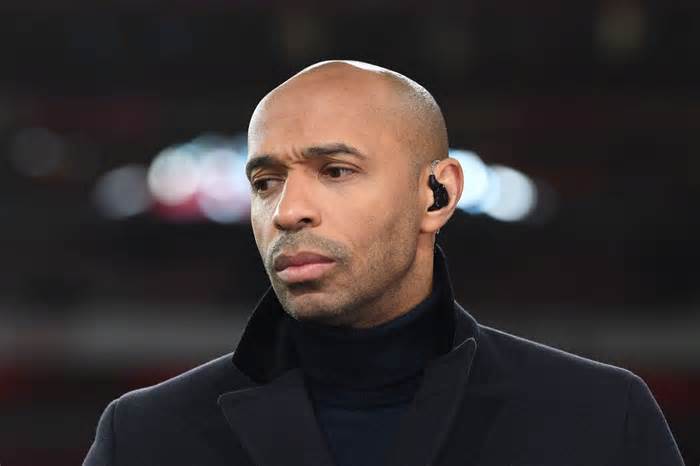n n n ‘. concat(e. i18n. t(“search. voice. recognition_retry”),’n
Arsenal legend Thierry Henry has opened up on his career-long battle with depression.
The Gunners’ all-time top scorer, who also won the World Cup with France, revealed he “cried almost every day” over the Covid-19 pandemic while in lockdown in Montreal, Canada.
Henry has linked his depression to his childhood and revealed how he once scored six goals in a youth game but his father, Antoine, was still not satisfied.
Speaking on the Diary of a CEO podcast, Henry said: “Throughout my career, and ever since I was born, I must have been depressed.
“Did I know it? No. Did I do something about it? No. But I adapted to a certain way. That doesn’t mean I’m walking straight, but I’m walking. You’ve got to put one foot [forward] and another one, and walk. That’s what I’ve been told since I’m young.
“I never stopped walking, so I would have noticed. [But during] Covid, I stopped walking. I couldn’t. Then you start to realize.
Henry, who is now the coach of France’s Under-21 team, had episodes during his playing career when he would struggle mentally.
The 46-year-old says he would put on a metaphorical cape to get through it and, after his playing days, became a coach with Belgium, and then Monaco and Montreal Impact to keep busy.
While in Montreal and unable to venture outdoors due to Covid, Henry learned that he was suffering from depression.
“It all happened at the same time, especially the Covid period,” he said. “I knew it before, but I was lying to myself. I made sure those emotions didn’t get too far, so I put on the “cape. “But when you’re no longer a player, you can’t put on that “cape” anymore.
“We have a tendency to run away rather than face our challenges. We try to keep busy, we try to meet the challenge, or we don’t think about it.
Henry says that at that time he “cried almost every day for no reason,” adding, “The tears came by themselves. I don’t know why, but maybe they were there for a long time. “
“Technically, it wasn’t me, it was the young me. [Crying for] everything he didn’t get, approval. I was isolated and not being able to see my kids was tough. I don’t even need to explain that one.
“Something like that had to happen to me to understand vulnerability, empathy, crying. Understand that emotions are emotions. I don’t know whether that needed to come out. It was weird but in a good way.”
Speaking of his upbringing, Henry recalled a game in which he scored every goal in his youth team’s 6-0 victory. But his father was not satisfied and poked holes in his functionality because “that control failed, that center failed. “”.
“As a kid, I always said, ‘You didn’t do that well. ’ So obviously, when you hear that as often as possible, that’s what’s going to stick,” Henry said.

